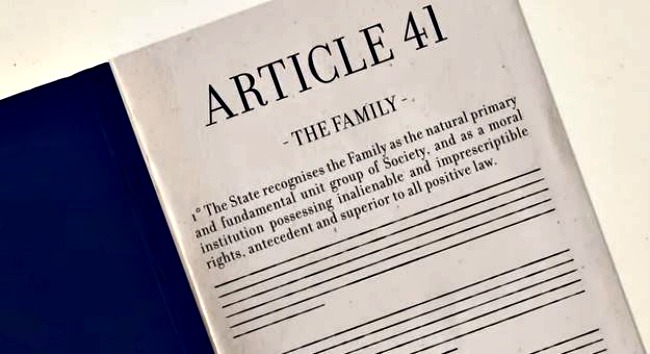It is now official. Marriage is about adults first and foremost. Last week, the Supreme Court issued a ruling in the case of a Muslim man who wanted his marriage to a second woman recognised under Irish law. The Court recognised only the validity of his first marriage as that marriage still existed.
In her ruling, on behalf of the court, Ms. Justice O’Malley set out the new legal and Constitutional understanding of marriage in the aftermath of the referendum of two years ago.
She said: “In my view the defining characteristic of marriage as envisaged by the Constitution in this era is that it entails the voluntary entry into mutual personal and legal commitments on the basis of an equal partnership between two persons, both of whom possess capacity to enter into such commitments, in accordance with the requirements laid down by law.”
Read that carefully. It could almost describe a business contract. There is no mention of love (not that love was ever a requirement for a marriage to be legally recognised, consent was the thing). More significantly, there is no mention of children.
Contrast this with Murray J. in D.T. v. C.T. [2003]. He said: “The life-long commitment which marriage in principle entails means that there is a mutuality of an intimate relationship in which singular aspirations in the life of each partner are adapted to mutual life goals.” So far, so like the Justice O’Malley definition.
But then he adds: “They adapt their lives to live and work together for the mutual welfare of their family which usually, but by no means necessarily so, involves the birth and rearing of children.”
Children do not rate a mention in Justice O’Malley’s view of marriage. Her view, the State’s view, the new Constitutional view, is that marriage is first and foremost about adults and their mutual satisfaction. It is no longer a child-centred institution first and foremost. Such an institution no longer exists in Irish law.
Prior to the referendum of 2015, marriage was a conjugal union, which is the type of union that, by its nature, can lead to children even if some conjugal unions are infertile.
Conjugal unions are obviously essential to the continuation of society. It made perfect sense for society and the State to recognise the absolute and fundamental importance of conjugal unions.
It no longer does so. It no longer sees conjugal unions as having any special character at all. In the new Constitutional view, marriage is about adults first and it is the union of any two adults in marriage (allowing for the prohibited degrees of relationship) that is “natural, primary and fundamental” (to use the words of the Constitution), not conjugal unions.
It is up to supporters of the new view of marriage to explain how it is that the union in marriage of any two adults is more primary and fundamental to society than conjugal unions and so are more deserving of special protection and support. Answers on a post-card please.
















